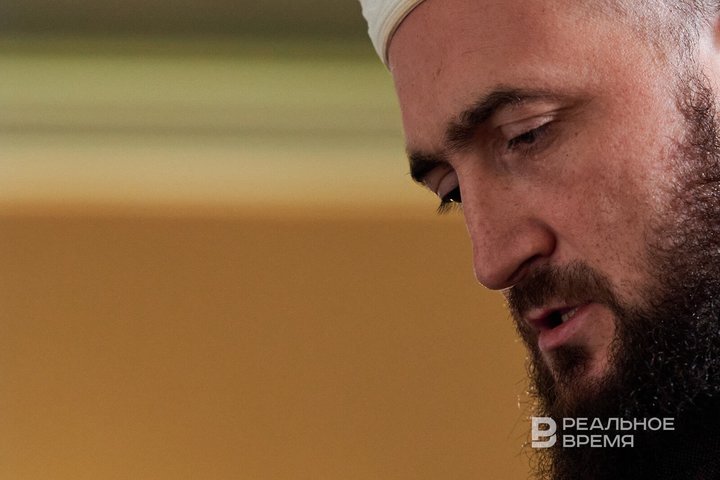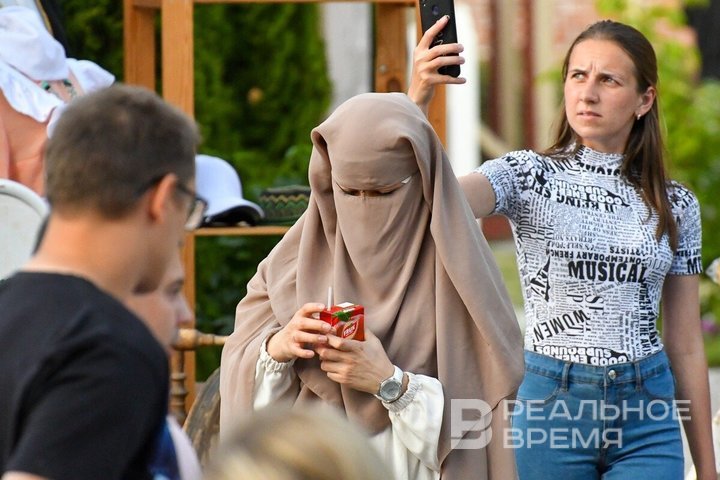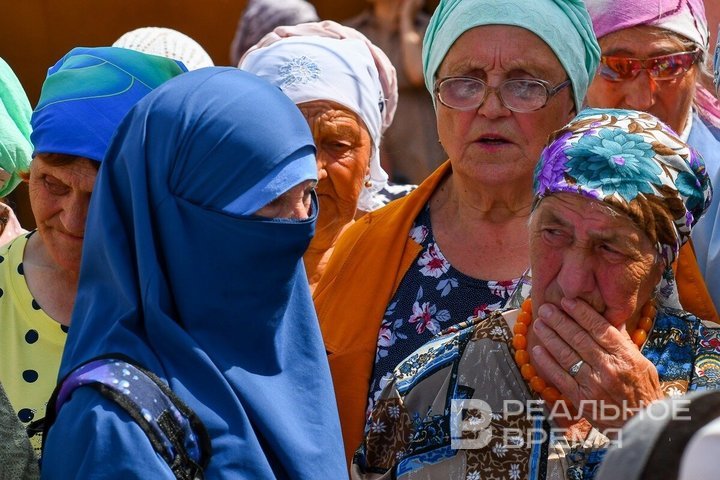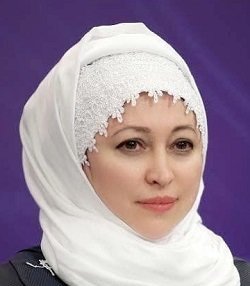Mufti of Tatarstan: ‘Professing a religion and observing its canons is the constitutional right of Russian citizens’
Kamil khazrat Samigullin openly opposed Vladislav Davankov's bill prohibiting the wearing of “religious clothing”

Chairman of the Muslim Spiritual Board of the Republic of Tatarstan Kamil khazrat Samigullin opposed the so-called bill on niqabs. In his telegram channel, the mufti of Tatarstan cited “The statement of the Coordinating Centre of Muslims of the North Caucasus regarding the V.A. Davankov's project” and commented: “Interethnic harmony in society cannot be achieved and preserved by encroaching on the right of a neighbour.”
“He is conducting openly anti-Islamic activities”
The statement of the Coordinating Centre of Muslims of the North Caucasus concerns the draft bill submitted to the lower house of parliament: “On Amendments to certain Legislative Acts of the Russian Federation” (regarding restrictions on the wearing of religious clothing in public places and educational organisations).
The essence of Vladislav Davankov's initiative is to allow organisations engaged in educational activities to establish a ban on wearing religious clothing, clothing with religious attributes and (or) religious symbols by a local regulatory act of the organisation. Moreover, in the third article of the project, we are talking about clothes that “completely or partially hide the face”. The explanatory note mentions the prohibition of niqab and hijab. It is assumed that the bill will be considered at the autumn session of the Duma.
The Coordination Centre of Muslims of the North Caucasus appealed to Russia's President Vladimir Putin and Chairman of the State Duma Vyacheslav Volodin, drawing “attention to the fact that with his project, Mr. V.A. Davankov is not just trying to deprive Russian citizens of the right to fully comply with religious norms, but also is conducting openly anti-Islamic activities”.
“Attempts to talk about national security as arguments in the context of educational organisations are also untenable… How many Muslim young women in hijabs in educational institutions have committed terrorist attacks, engaged in schoolshooting? There are no such facts! We are sure, V.A. Davankov knows this, but nevertheless, allows himself to cite it as an argument," in particular, the letter says, after which the authors come to the conclusion:
“It is categorically impossible to prohibit or restrict religious clothing mandatory for Muslim women, including in educational organisations, under the pretext of adopting a single secular uniform by a local act. It would be absolutely wrong to allow local regulations to regulate the clothes of students by educational organisations. This is the path towards split.”

“I am sure that he will be surprised by the diversity of Russian culture”
“I join the position of the Coordinating Centrer of Muslims of the North Caucasus and, on behalf of the Muslims of Tatarstan and the Duma of the Republic of Tatarstan, express full solidarity with the statement against the legislative initiative to restrict the wearing of religious clothing in public places and educational organisations in Russia," the Mufti of Tatarstan has already stated in his post. “At a time when Muslim fighters are shedding blood in the area of their homeland, for their national and religious traditions, for the common spiritual values of the peoples of Russia, in the rear of their women, at the legislative level, they are trying to infringe on their constitutional rights and prohibit them from being covered. Perhaps, a deputy who should protect the interests of the people and Russia, but openly lobbies for a bill against Muslims, inciting ethnic strife in society, should go to the soldiers on the front line or at least go outside Moscow and get acquainted with the multinational composition and religious traditions in different regions of Russia. I am sure that he will be surprised by the diversity of Russian culture.”
At the end, Kamil Samigullin quotes a verse from the Koran: “Human beings, We created you all from a male and a female, and made you into nations and tribes so that you may know one another. Verily the noblest of you in the sight of Allah is the most God-fearing of you. Surely Allah is All-Knowing, All-Aware.” (Tafseer of Verse 13 of Surah Al-Hujurat).
The head of the Duma of the Republic of Tatarstan summarises his speech: “Interethnic harmony in society cannot be achieved and preserved by encroaching on the right of a neighbour. Today, professing one's religion and observing its canons is a constitutional right of Russian citizens. And being covered for a woman is an order from God, which Muslims will not violate under any circumstances and under any threat.”

“We, the Muslim women of Russia, frankly, are tired of fighting this phenomenon”
The wearing of niqabs began to be actively discussed in April 2024, when Communist Party deputy Mikhail Matveev sent a request to the Interior Ministry to ban face-concealing clothing.
On May 20, Chairman of the Presidential Human Rights Council Valery Fadeev, in an interview with the Parliamentary Newspaper, raised the topic of niqabs — headdresses that completely cover the face of women, leaving only the eyes open: “I will discuss this issue with representatives of traditional Islam and regional authorities. But I will first indicate my position: I think that niqabs should be banned in Russia.”
Then Ildar Alyautdinov, the deputy chairman of the Muslim Spiritual Spiritual Board of the Russian Federation, Mufti of Moscow, commented on this remark on his telegram channel: “If official authorities identify a link between wearing the niqab and an increased risk of extremism and, as a result, banning the niqab will serve to save the lives of our citizens, then the Muslim Spiritual Board is ready to support V. Fadeev's proposal, abandoning the desirable (in this case, the wearing of the niqab) in favour of the mandatory, that is, the preservation of human life and health.”
Finally, on May 28, Vladislav Davankov, the deputy chairman of the State Duma, deputy from the New People party, introduced the mentioned bill to the parliament. The explanatory note states that this is necessary “given the current high level of terrorist threats (an indefinite high (yellow) level of terrorist danger has been introduced in a number of subjects of the Russian Federation).” A hidden face cannot be identified by CCTV cameras.

“We, the Muslim women of Russia, frankly, are tired of fighting this phenomenon, that we are forbidden to wear the clothes that we want to wear," says Nailya Ziganshina. “If we tie a headscarf on our head, then this is our choice. No one obliges, no one forces us. This is a human spiritual aspiration. Forbidding a person to live by their spiritual values is, I think, inhumane.”